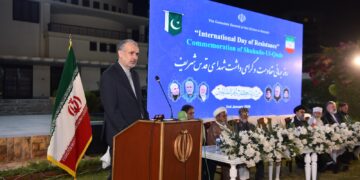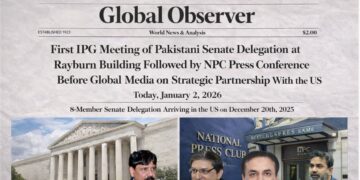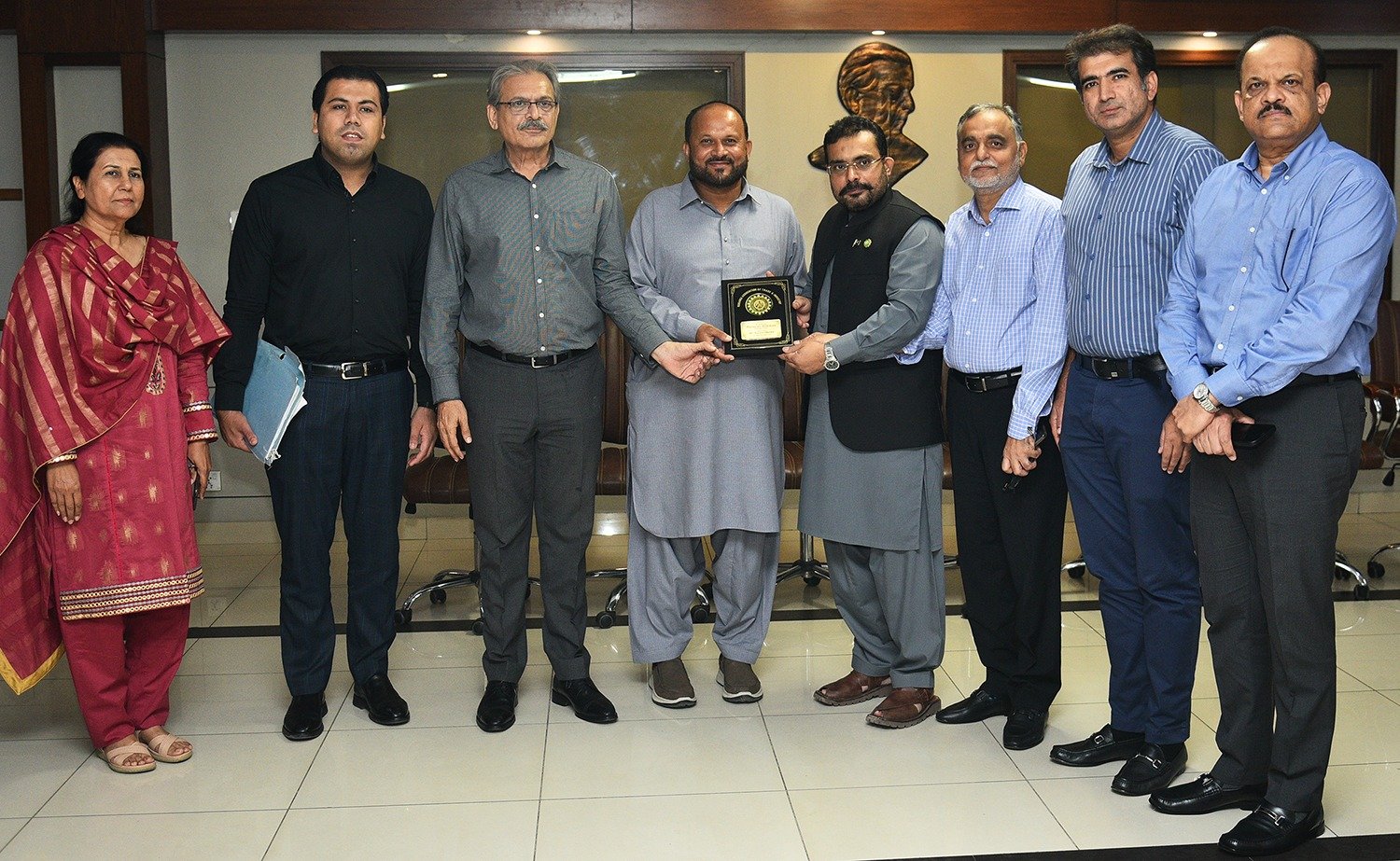Pakistan government will have to spend more or less 600 billion on the construction of Bhasha Dam just because of devaluation of Pakistani currency in 2020. Before devaluation, the dollar-rupee exchange rate was about 118, hence the estimated cost of the dam was Rs 1652 ($14 billion). However, as the dollar-rupee parity rate has surged to 160 rupees in 2020, the cost of the dam in Pakistani currency has increased to 2,240 billion rupees. Hence, the government will have to bear an additional cost of 600 billion rupees to build this dam. This extra cost will further increase in case rupee is further devaluated in coming years as Bhasha Dam is scheduled to be completed by 2028.
Nonetheless, a good thing is that the work is this much-awaited hydro power project has been started in 2020. For this purpose, the Pakistan government has signed an agreement with a joint venture of China Power and Frontier Works Organisation (FWO) that will build Diamer-Bhasha dam. The beginning of construction of this mega dam, 20 years after its initial planning, seems to be a major achievement of the PTI government.
The state controlled Chinese company, China Power, holds 70 per cent stake in this venture while the Frontier Works Organisation, a mega commercial construction company, a subsidiary of the Army Welfare Trust, founded by the Pakistan Army, holds 30pc share. The contract covers construction of a diversion system, main dam, an access bridge and the 21-MWs Tangir hydropower project with an estimated cost of 442 billion rupees.
The CEO Diamer-Bhasha dam project Amir Bashir Chaudhry and authorised representative of China Power Yang Jiandu signed the agreement on behalf of the Water and Power Development Authority (Wapda) and the joint venture, respectively. The Bhasha Dam’s eight million acre feet (MAF) reservoir with 272-metre height will be the tallest roller compact concrete (RCC) dam in the world. It will have a spillway, 14 gates and five outlets for flushing out silt. The diversion system involves two tunnels and a diversion canal — all three having one kilometre length each. The bridge — a box girder structure — under the contract will be constructed downstream of the dam structure.
Three Government waste 19 years
Before this agreement, the past three governments wasted 19 years but they could not complete the process of land acquirement for this US$14 billion project. In last 19 years the previous governments _ of Gen. Pervez Musharraf, Asif Ali Zardari and Nawaz Sharif laid the foundation-stones of the Bhasha Dam construction one by one, drummed it well to win the hearts and supports of the general public, but all these governments left the project at the beginning. Musharraf ruled Pakistan for straight nine years, from Oct 1999 to 2008 (before the formation of PPP govt) while Pakistan People’s Party reigned the country for five years (April 2008 to March 2013, while Pakistan Muslim League (Nawaz) also run the country for five consecutive years, from June 2013 to May 2018, but the process of purchasing the land to build this mega dam could not be completed. The PML(N) government paced up the land acquisition process, but its five-year also ended without completing the task of acquiring land. How much serious is the PML(N) government in this project it can be guessed from the fact that it is allocated less than one percent of the total cost of the project in each budget for the dam.
In other words, a dam that was to be completed in 14 years, its land could not be purchased in 19 years. This is the way our rulers try to solve the energy problem. On several occasions the former Federal Minister for Finance Senator Muhammad Ishaq Dar vowed to build two big dams _ Dasu and Basha Dams to meet the shortage of water and electricity. The PML(N) government arranged conference in Washington to get financial support from the donors and the investors to build Diamir Bhasha Dam. But the World Bank foiled that conference by giving the verdict that the government should carry out the risk assessment of the project that also needed an NOC from India. Just imagine, can India give Pakistan an NOC to build a dam that can change the future scenario of Pakistan.
Experts often say every year that if Pakistan builds one big dam, the country can overcome the annual feature of devastation of floods and produce clean energy and meet water requirements for agricultural purposes.
About BHASHA DAM
Bhasha Dam is a gravity dam, in the preliminary stages of construction, on the River Indus in Gilgit-Baltistan, Pakistan. Its foundation stone was laid by Prime Minister Yusuf Raza Gilani of Pakistan on 18 October 2011. Upon completion, Diamer-Bhasha Dam would be the highest RCC dam in the world. The dam site is situated near a place called “Bhasha” in Gilgit-Baltistan’s Diamer District, hence the name.
Upon completion, Diamer-Bhasha Dam would (i) produce 4,500 megawatts of electricity through environmentally clean hydropower generation; (ii) store an extra 8,500,000 acre feet (10.5 km) of water for Pakistan that would be used for irrigation and drinking; (iii) extend the life of Tarbela Dam located downstream by 35 years; and (iv) control flood damage by the River Indus downstream during high floods.
It will have a height of 272 meters spillway with fourteen gates each 11.5 m x 16.24 m. The gross capacity of the reservoir will be 8,100,000 acre feet (10.0 km), with a live storage of 6,400,000 acre feet (7.9 km). Two underground power houses are being proposed, one on each side of the main dam having six turbines on each side with total installed capacity 4500 MW.
In January 2006, the Government of Pakistan announced the decision to construct 5 multi-purpose storage dams in the country during next 10–12 years.
According to the plan, Diamer-Bhasha Dam project was proposed in the first phase and in November 2008, the Executive Committee of National Economic Council formally approved the project. Council of Common Interests Pakistan, a constitutional body representing the provinces, also approved the construction of the dam. The Prime Minister of Pakistan laid the foundation stone of the project on 18 October 2011.
India’s NOC, construction & cost of Basha Dam
In November 2008, the cost of the Diamer-Bhasha dam was estimated at $12.6 billion, now delay in the construction of the dam had raised its cost to over $14 billion. The World Bank has linked funding for the construction of this dam with the issuance of a No-Objection Certificate (NOC) from India _ which, in other words, is nothing but a technical way to say ‘no’ to WB loans for this project’.
History & Background of Bhasha Dam project
The initial feasibility study of Diamir Basha Dam was conducted in 1984 by Montreal Engineering Co of Canada. In the year 2000, the Musharraf government decided to build Bhasha Dam and appointed consultants for undertaking a detailed project study in 2002. NEAC Consultants, a consortium of Pakistani consultants with Binnie and Partners of the UK, completed their final report in August 2004, confirming techno-economic feasibility of the project. They also carried out engineering design and prepared project tender documents.
Consequently, WAPDA invited expression of interest for carrying out detailed design and engineering and review of work done earlier. For reasons of maintaining project parameters of earlier investigations, and of short lead time, it is standard international practice to prefer for the job the consultants who originally carried out the feasibility study and basic designing. This was not done, though NEAC Consultants offer was considered technically and commercially responsive against tenders.
The contract was awarded in July 2005 to Lahmeyer International of Germany, under a joint venture known as Diamer-Bhasha Consultants. They completed project detailed engineering in March 2008 after review of previous data, studies and investigations done by NEAC Consultants. The Musharraf, Zardari and Nawaz Sharif governments ended without achieving much breakthrough in the construction of this mega project. (Note: Writer is senior journalist, TV analyst and former Resident Editor of daily The Nation, Karachi).


Javed Mahmood Editor THE AZB/ Corporate Ambassador/TV & Social Media Analyst Founder/Editor, PAK VIP Media (Google Group of 5000+ Journalists)



















